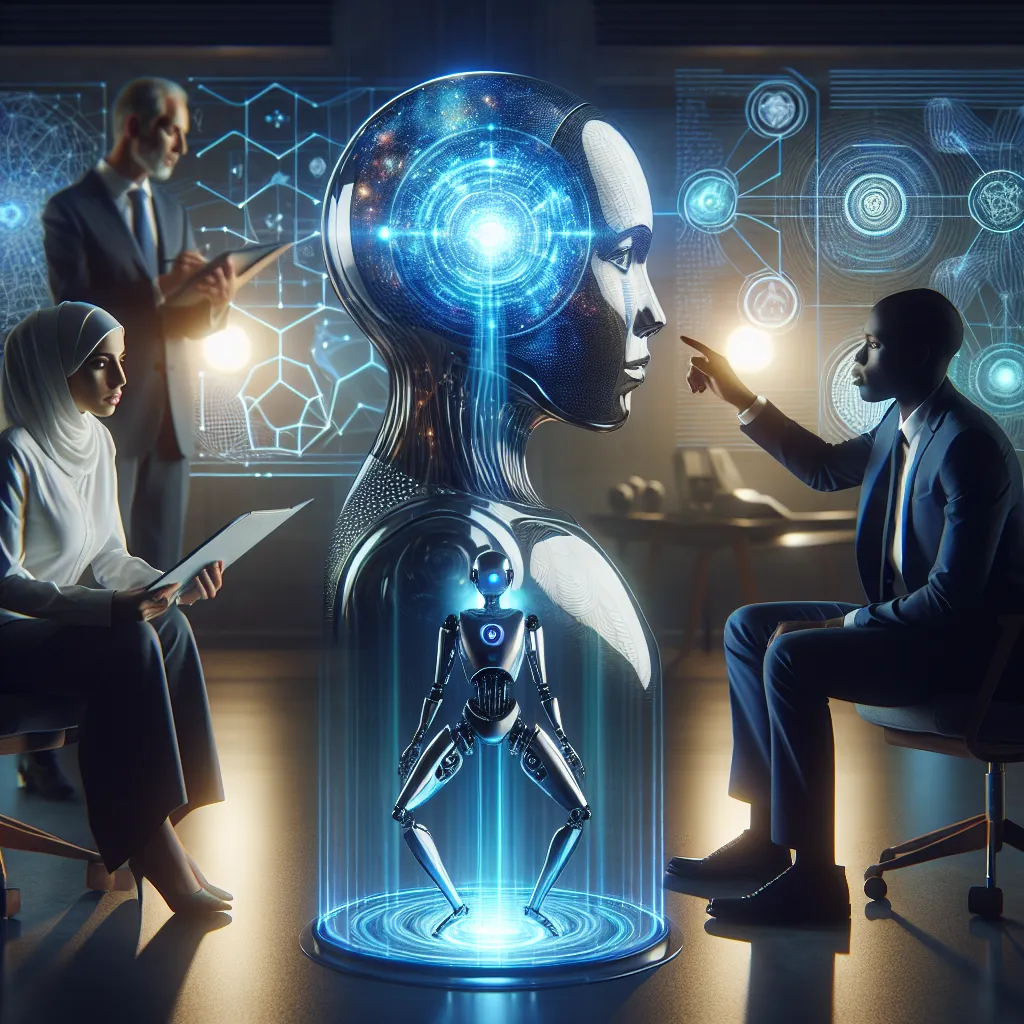Artificial Intelligence (AI) technology has rapidly progressed over the past few years, transforming industries and changing the way we live, work, and interact. This is particularly evident in the field of psychological assessment, where AI is revolutionizing personality tests, contributing to innovative approaches, and promising to enhance the accuracy and efficacy of these evaluations. As we venture further into the 21st century, AI and personality tests are becoming increasingly intertwined, leading us to consider the future of psychological assessment in a new light.
Initial utilization of personality tests dates back to the early 20th century, designed to give insight into individuals’ psychological makeup. Traditionally, these assessments have been administered through paper-and-pencil tests or computer-based surveys with a series of questions aimed at evaluating various traits such as openness, conscientiousness, extraversion, agreeableness, and neuroticism—the Big Five personality traits. These methods, while effective, come with inherent limitations, such as response bias and the static nature of the test items.
Enter AI, a game-changer in the realm of personality assessment. AI-integrated personality tests utilize complex algorithms and machine learning techniques to analyze vast amounts of data from various sources. This not only includes direct responses to test questions but can extend to the examination of an individual’s digital footprint—social media activity, language patterns, and even facial expressions and speech when video or audio components are included.
The implications of AI in personality testing are manifold. Firstly, AI can process and interpret vast datasets at a speed and depth that no human could match. This allows for a more nuanced and comprehensive understanding of a person’s personality. Algorithms can detect subtle patterns and infer personality traits from data points that might go unnoticed in a traditional assessment. This leads to a more personalized profile of an individual’s psychological makeup, paving the way for more tailored interventions, be it in clinical settings or in the workplace.
Moreover, AI-driven personality tests can adapt in real time. Adaptive testing is a method where the test itself evolves based on the respondent’s answers. If an answer suggests expertise or a high level of understanding in one area, the AI might present more challenging questions to precisely gauge the depth of a particular trait. Conversely, if an individual struggles with certain types of questions, the test might adjust to their level to maintain engagement and yield more accurate results. This dynamic approach leads to a more efficient testing process, reducing the number of questions needed while enhancing the user experience.
Another significant advancement brought about by AI in personality assessments is the ability to minimize bias. Traditional tests, although standardized, can carry cultural biases that may affect the outcome for people from diverse backgrounds. AI can be programmed to recognize and control for these biases, striving for a more fair and objective assessment. It must be noted, however, that this relies heavily on the quality of data on which the algorithms are trained. If the data is biased, even unwittingly, AI can perpetuate and amplify these biases. Consequently, meticulous and diverse data collection and continuous monitoring of outcomes for bias are crucial in AI development for psychological assessments.
AI’s penetration into personality tests is not limited to individual assessments. In the corporate world, companies are increasingly adopting AI-driven personality assessments for recruitment, team building, and employee development. These tools can help HR personnel identify candidates whose traits align with company culture, predict job performance, and even determine team compatibility, all of which are essential factors for a harmonious and productive workplace.
Furthermore, AI and personality tests are making strides in mental health. The ability of AI to detect early signs of psychological distress or changes in mental state through passive data like social media usage patterns can be transformative for predictive healthcare. Integrating AI personality tests in therapeutic settings can also provide clinicians with additional insights into their clients, enabling more customized treatment plans.
Privacy and ethical concerns, of course, come hand in hand with the benefits of AI in personality testing. The use of AI raises questions about data security, confidentiality, and the potential misuse of sensitive personality profiles. Clear regulations and ethical guidelines are necessary to ensure that the use of AI in psychological assessment respects individuals’ rights and privacy.
To address these concerns, developers, and practitioners employing AI in personality tests need to prioritize transparency and consent. Users should be clearly informed about what data is being collected, how it is being used, and who will have access to it. Moreover, the development of AI systems for psychological assessment should involve multidisciplinary teams, including ethicists, psychologists, and AI specialists, to oversee the proper and ethical use of these tools.
Looking to the future, the integration of AI in personality tests seems set to continue its upward trajectory. Advances in natural language processing, sentiment analysis, and biometric indicators will further refine the capacity of AI to understand human personality. This, combined with the continuous evolution of AI and its increasing sophistication, signals a new era in psychological assessment—one that is more efficient, accurate, and versatile.
At its core, the future of psychological assessment with AI promises a deeper understanding of the human psyche. By transcending the limitations of traditional methods, AI has the potential to unlock insights into personality that were previously infeasible to obtain. Through improving the standard of assessment, this pioneering technology can ultimately contribute to better mental health outcomes, more cohesive work environments, and enrich our understanding of what makes us unique as individuals.
In conclusion, as AI reshapes the landscape of personality testing, it is essential that we embrace its potential while diligently navigating the associated challenges. The harmonization of AI’s cutting-edge capabilities with the nuanced understanding of human behavior holds promise for an unprecedented advancement in psychological assessments. It’s a future that is not only on the horizon but is unfolding right before our eyes, driving us toward a more informed, personalized, and ethically conscious application of psychological science.



Leave a Comment